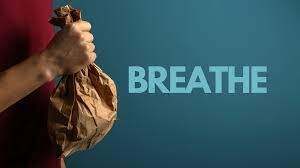A nurse is collecting data on a patient who has chronic kidney disease.
Which finding is a sign of hyperkalemia?
Wheezing.
Decreased deep tendon reflexes.
Hypoactive bowel sounds.
Cerebral edema.
The Correct Answer is B
The correct answer is: B. Decreased deep tendon reflexes.
Choice A rationale: Wheezing is not typically associated with hyperkalemia. It is more commonly related to respiratory conditions.
Choice B rationale: Hyperkalemia can cause decreased deep tendon reflexes due to the effect of high potassium levels on nerve conduction and muscle function.
Choice C rationale: Hypoactive bowel sounds are not a common sign of hyperkalemia. They are more often associated with gastrointestinal issues.
Choice D rationale: Cerebral edema is not related to hyperkalemia. It is usually associated with conditions affecting the brain, such as trauma or infections.
Nursing Test Bank
Naxlex Comprehensive Predictor Exams
Related Questions
Correct Answer is B
Explanation
The correct answer is: B. Decreased deep tendon reflexes.
Choice A rationale: Wheezing is not typically associated with hyperkalemia. It is more commonly related to respiratory conditions.
Choice B rationale: Hyperkalemia can cause decreased deep tendon reflexes due to the effect of high potassium levels on nerve conduction and muscle function.
Choice C rationale: Hypoactive bowel sounds are not a common sign of hyperkalemia. They are more often associated with gastrointestinal issues.
Choice D rationale: Cerebral edema is not related to hyperkalemia. It is usually associated with conditions affecting the brain, such as trauma or infections.
Correct Answer is B
Explanation
Choice A rationale:
Administering insulin to a client who is hyperventilating due to respiratory alkalosis would not be the appropriate action. Insulin is used to lower blood glucose levels in clients with hyperglycemia, such as those with diabetes mellitus. It does not directly address the issues of hyperventilation or respiratory alkalosis.
Choice B rationale:
Having the client breathe into a paper bag is the correct action in this case. When a person hyperventilates, they exhale more carbon dioxide (CO2) than they produce. This can lead to a state of respiratory alkalosis, where the blood becomes too alkaline due to the low levels of CO2. By breathing into a paper bag, the client re-inhales some of the exhaled CO2, helping to restore the balance of gases in the blood and alleviate the symptoms of respiratory alkalosis.

Choice C rationale:
Administering sodium bicarbonate to a client who is hyperventilating and has respiratory alkalosis would not be the appropriate action. Sodium bicarbonate is an alkalinizing agent used to treat conditions where there is too much acid in the body, such as metabolic acidosis. In this case, the client’s body is too alkaline due to the respiratory alkalosis, so administering an alkalinizing agent would exacerbate the condition.
Choice D rationale:
Having the client place their head between their knees would not be the appropriate action for a client who is hyperventilating due to respiratory alkalosis. This position is often used to help alleviate symptoms of dizziness or fainting, but it does not address the underlying issue of the imbalance of gases in the blood due to hyperventilation.
Whether you are a student looking to ace your exams or a practicing nurse seeking to enhance your expertise , our nursing education contents will empower you with the confidence and competence to make a difference in the lives of patients and become a respected leader in the healthcare field.
Visit Naxlex, invest in your future and unlock endless possibilities with our unparalleled nursing education contents today
Report Wrong Answer on the Current Question
Do you disagree with the answer? If yes, what is your expected answer? Explain.
Kindly be descriptive with the issue you are facing.
